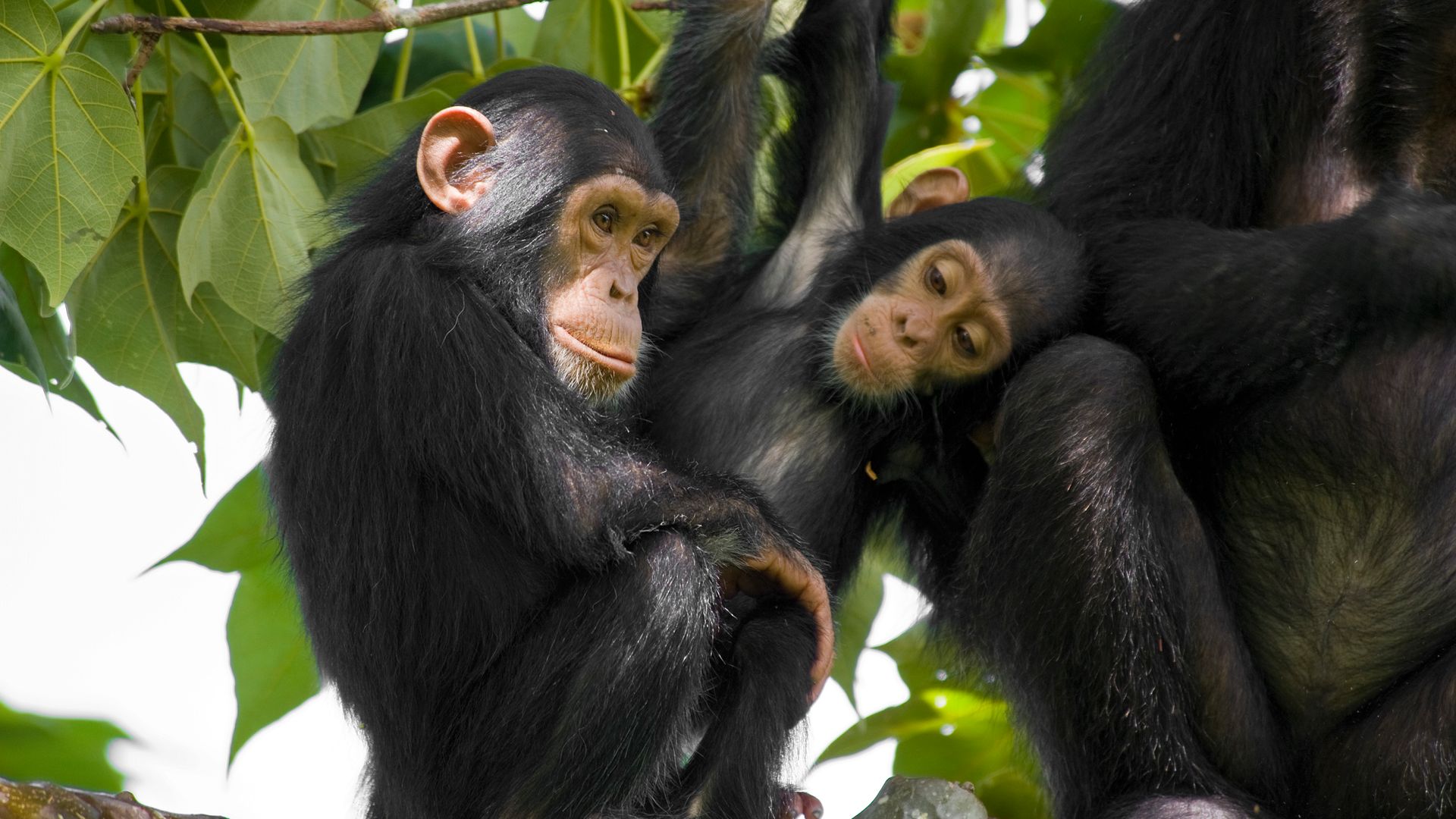Chimpanzees carry out tasks better when they are watched by others – just like many people do at work – a new study has suggested.
A research team in Japan suggested the great apes are receptive to the audience effect – where a person’s behaviour changes when they believe someone else is watching – which was long thought to be unique to humans.
Christen Lin, of Kyoto University in Japan, said: “It was very surprising to find that chimpanzees are affected in their task performance by audience members, and by human audience members nonetheless.
“One might not expect a chimp to particularly care if another species is watching them perform a task, but the fact that they seem to be affected by human audiences even depending on the difficulty of the task suggests that this relationship is more complex than we would have initially expected.”
The researchers analysed thousands of video sessions over six years, where six chimps at the Centre for the Evolutionary Origins of Human Behaviour at Kyoto University were watched completing touchscreen tasks.
They found the animals performed better on the most difficult tasks as the number of people watching them increased.
But, when carrying out the easiest tasks, the chimps performed worse when being watched by more people.
Keep up with all the latest news from the UK and around the world by following Sky News
The researchers said they cannot explain what drives these audience-related behaviours – even for humans – but added in their report that being watched “may influence the perception of reward, cognitive load, and concentration”.
Shinya Yamamoto, also of Kyoto University, said the results indicate the audience effect “may not be quite so specific to our species”.
Read more from Sky News:
Chimps ‘like human babies’ as they learn to speak
Man’s squirrel euthanised after anonymous complaints
Cricket legend falls into crocodile-infested waters
He said the characteristics in humans “are a core part of how our societies are largely based on reputation”.
“If chimpanzees also pay special attention towards audience members while they perform their tasks, it stands to reason that these audience-based characteristics could have evolved before reputation-based societies emerged in our great ape lineage,” he added.
Be the first to get Breaking News
Install the Sky News app for free
Further research is needed to understand how the trait developed, the team said.
Their findings were published in the journal iScience.





